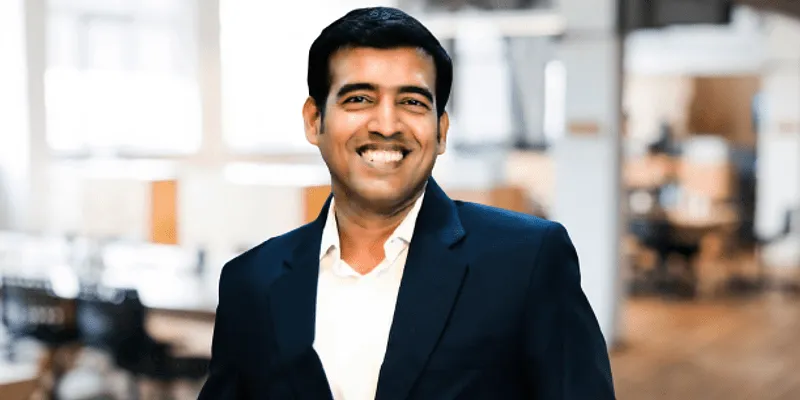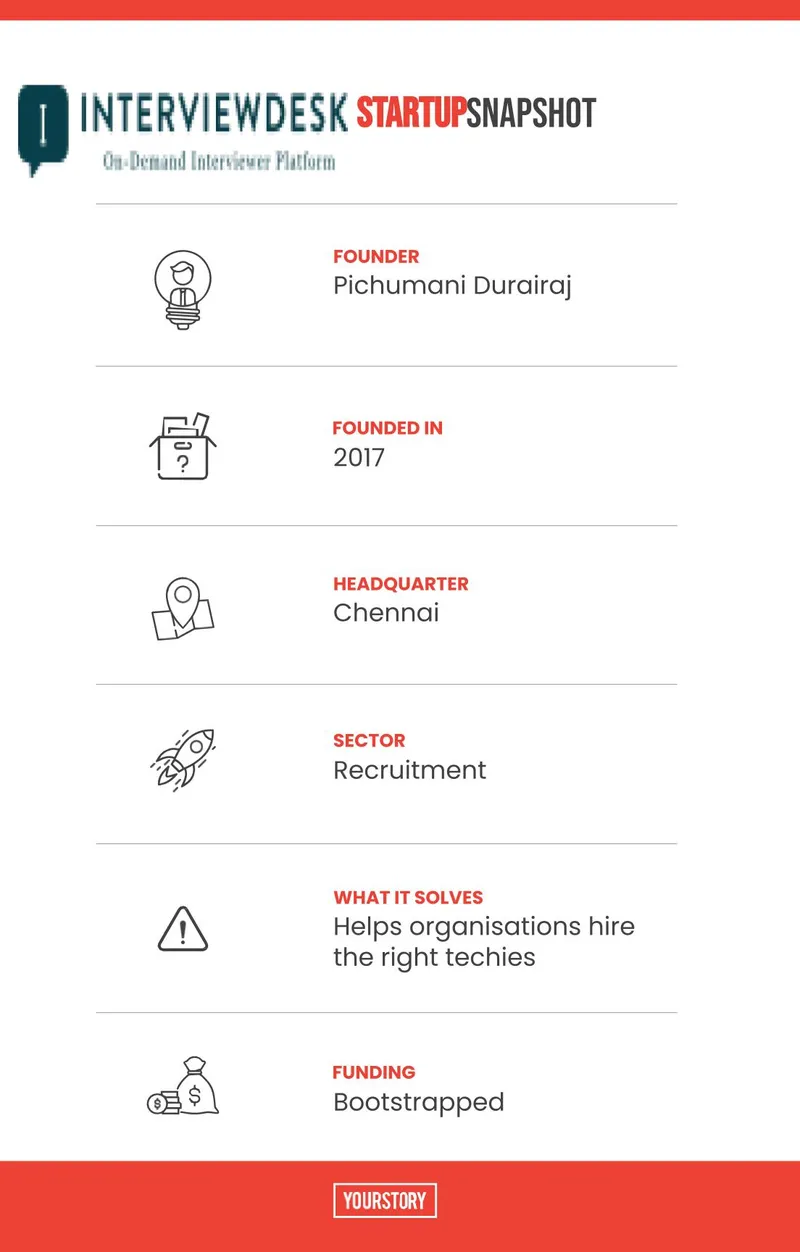With data, AI/ML, and expert recruiters, this B2B HR tech startup helps organisations hire the right techies
Founded in 2017, InterviewDesk aims to help companies hire the right technical talent. The Chennai-headquartered B2B startup has conducted over 25,000+ remote interviews.
Hiring the right people takes time, effort, and money. Companies need to wade through hundreds, sometimes thousands, of resumes, arrange interviews, talk to potential candidates, and so on.
This is where Pichumani Durairaj saw a lucrative business opportunity — to increase the efficiency of recruiting. In 2017, he launched HR tech startup InterviewDesk to help companies conduct technical interviews remotely.
“We wanted to see what happens if we put in a methodology to remove the drudgery of going through tonnes of resumes, a mechanism to weed out the ones that don’t fit, and finally, shortlist the ones that really matter along with their feedback,” the Founder-CEO tells YourStory.

InterviewDesk Founder and CEO Pichumani Durairaj
InterviewDesk is headquartered in Chennai, and also has an office in New York. The B2B startup conducts technical interviews and hires software engineers for organisations.
The startup’s objective is to help clients develop structured technical interview processes that align with their hiring bars, assess core competencies, and get the most predictive hiring signal. It claims to help organisations save more than 70 percent of time and cost spent on hiring.
How it works
InterviewerDesk was born out of the founder’s mission to create an on-demand interviewer platform to build what he believes will be “the world’s largest interviewer community”.
With two decades of experience in the recruitment space, Pichumani has worked for top product-based companies like Amazon and KLA Tencor. He started his entrepreneurial journey in 2013 with a recruitment consulting firm.
The core team includes Venkatanarayanan leading product and growth, Paul David Benjamin leading operations, and ArunPaul leading business and growth. Last year, Priya Vadasseri helped co-found InterviewDesk in the US and expanding it in the international market.
“The mission is to help companies to build great tech teams faster. Powered by AI/ML, InterviewDesk solves the most complex problems in the recruitment life cycle — interviews,” explains Pichumani.
With a dedicated community of over 500 interviewers who are veterans in the software industry, InterviewDesk predominantly helps hire for roles in tech, product, and tech leadership, such as front-end engineers, backend engineers, senior IC, senior EM/PM, distributed systems engineers, software engineers, mobile application developers, and more.
Companies share their list of candidates, requirements, and the official job description with InterviewDesk and the team takes care of scheduling the interviews, mapping their internal panels based on the requirements with the help of their AI/ML platform. It charges clients based on the number of interviews.
It takes on the responsibility of the initial screening and the technical rounds and shares names of shortlisted candidates, along with their individual structured feedback to the client.
“We’ve conducted over 25,000+ remote technical interviews since 2017 across India and the US markets for more than 45 clients,” says Pichumani.
These include BYJU’S, Ally.io, Rupeek, Tekion Corp, SPi Global, Common Energy, MobSquad.io, among others.

The present and future ahead
According to Fortune Business Insights, the global online recruitment market size was worth $28.68 billion in 2019, and is projected to reach $43.39 billion by 2027, exhibiting a CAGR of 7.1 percent during the forecast period.
Globally, InterviewDesk competes with US-based companies Karat and BrightHire.
Bootstrapped until now, the 20-member startup is in talks to raise its first round of funding. By 2022, InterviewDesk aims to conduct 100,000 remote technical interviews, and scale its team across India and the US.
“With the data from the many interviews we’ve conducted, we are trying to build a predictive model to gather insights, intended to inform future recruiting strategies, hiring decisions, and workforce planning. We are also focusing more on building deep tech AI/ML engines to scale the interviews in a robust manner,” says Pichumani.
Edited by Saheli Sen Gupta








